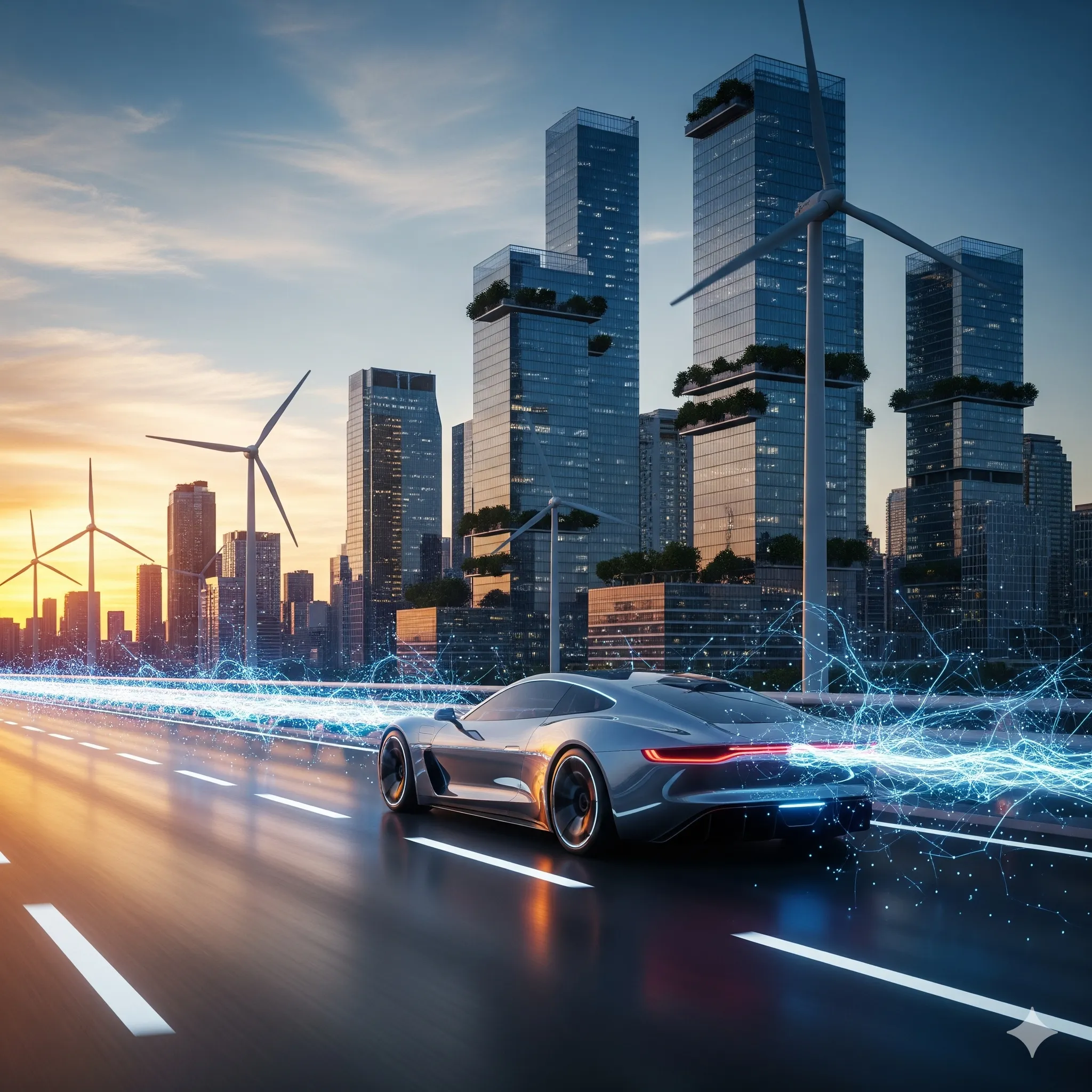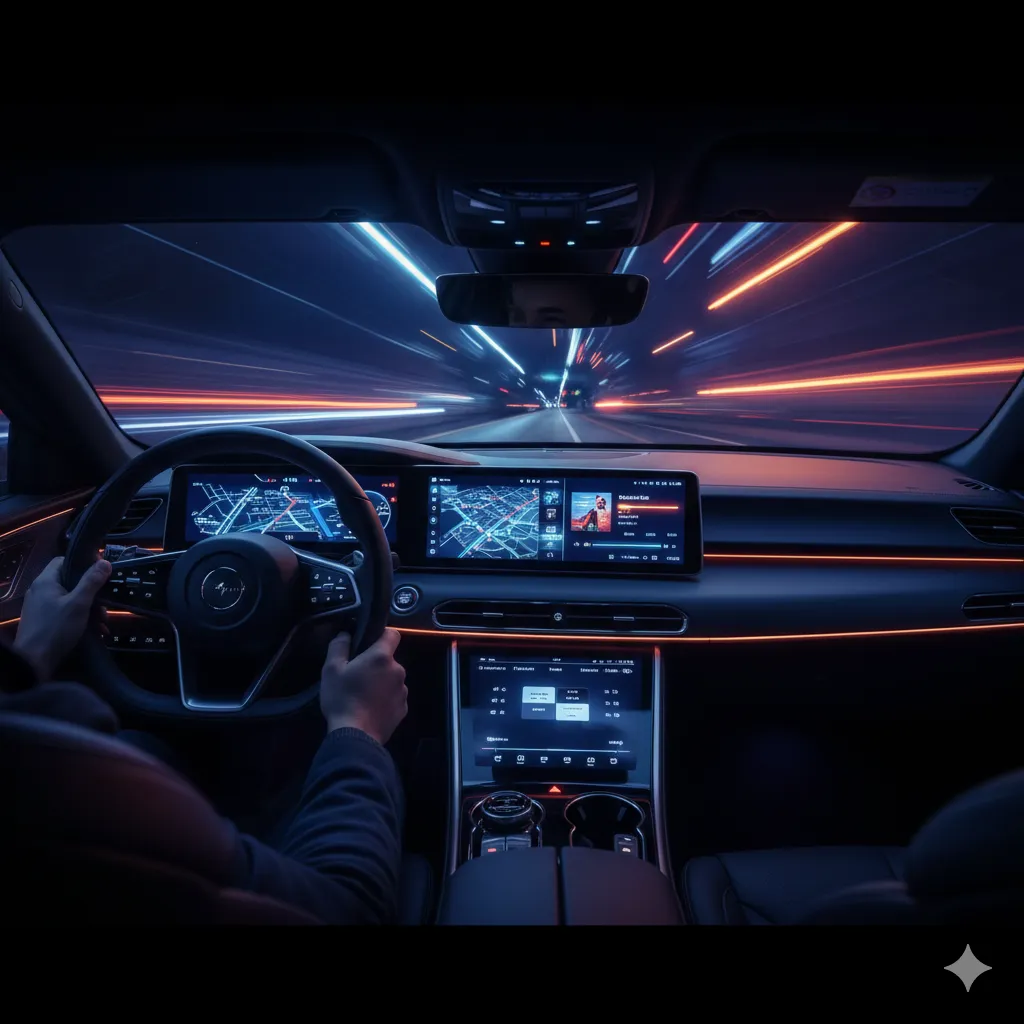
The Electric Vehicle Revolution: New EV Launches and Trends
The Road Ahead: Navigating the EV Revolution
Electric vehicles (EVs) are no longer a futuristic dream. They are a tangible reality, rapidly reshaping the automotive industry and our daily lives. The global EV market is experiencing unprecedented growth, driven by a combination of technological innovation, increasing consumer demand for sustainable options, and supportive government policies. In this comprehensive guide, we'll dive into the latest EV launches, explore the cutting-edge trends, and look at the exciting future of electric mobility.
The shift from internal combustion engine (ICE) vehicles to electric powertrains is one of the most significant transitions in modern transportation. It’s a move that promises not only environmental benefits but also a new era of driving performance, lower running costs, and a fundamental change in how we think about personal mobility. With new models hitting the market at a rapid pace, it's an exciting time to be an electric vehicle enthusiast or a prospective owner.
The Latest EV Launches: What's New on the Horizon?
The electric vehicle landscape is more diverse than ever, with automakers from around the world releasing new and exciting models. From luxury sedans to rugged trucks and family-friendly SUVs, there's a new EV for every need and budget.
Key New EV Models to Watch:
-
Dodge Charger Daytona: Marking a historic shift for the iconic muscle car brand, the Dodge Charger Daytona is an all-electric muscle car. It blends the traditional aggressive styling and high-performance heritage with a modern, silent electric powertrain, aiming to redefine what a muscle car can be.
-
Afeela 1: A unique collaboration between Sony and Honda, the Afeela 1 is a technology-focused sedan. With a suite of 40 sensors, an array of screens, and an advanced operating system, it's designed to be a "mobility device" that integrates seamlessly with our digital lives.
-
Audi Q6 e-tron: This compact luxury SUV is a significant addition to Audi's electric lineup. The Q6 e-tron promises a blend of Audi's signature design, cutting-edge technology, and impressive performance figures, built on the advanced Premium Platform Electric (PPE) platform.
-
BMW Neue Klasse Models: BMW is ushering in a "new class" of electric vehicles, with concepts like the Vision Neue Klasse teasing the future of the brand. These models, including an electric version of the popular 3-series, will feature a new design language, advanced battery technology, and an 800-volt electrical architecture for ultra-fast charging.
-
The Alpine A390: This slinky fastback crossover from Renault's performance subsidiary plans to enter the U.S. market with a tri-motor powertrain and up to 470 hp. It's a sign that high-performance and sports car segments are also embracing the electric transition.
Emerging Trends in Electric Vehicle Technology
The innovation isn't just in the new EV launches themselves, but in the underlying technologies that make them better, faster, and more accessible. Several key trends are defining the future of the industry.
Battery and Charging Advancements
Range anxiety—the fear of an EV running out of charge before reaching a charging station—is a major concern for many potential buyers. However, advancements in battery technology and charging infrastructure are rapidly addressing this.
-
Solid-State Batteries: This is a holy grail for EV technology. Solid-state batteries offer higher energy density, faster charging times, and improved safety compared to today's lithium-ion batteries. While still in development, they hold the potential to unlock a new level of performance and range.
-
Ultra-Fast Charging Networks: Companies like Tesla with their Supercharger network and other third-party providers are building out ultra-fast charging stations that can add hundreds of miles of range in less than 30 minutes. This is making long-distance travel in an EV more practical than ever before.
-
Vehicle-to-Grid (V2G) Technology: This is a revolutionary concept where your EV can not only draw power from the grid but also supply energy back to your home or the grid during peak demand or power outages. This turns an electric vehicle into a mobile energy storage unit, adding a new layer of functionality and resilience.
Software-Defined Vehicles and Autonomous Driving
Today's EVs are as much a computer on wheels as they are a car. The rise of software-defined vehicles means that new features, performance upgrades, and even repairs can be delivered through over-the-air (OTA) updates. This keeps vehicles up-to-date and improves their functionality over time.
Additionally, electric vehicles are a natural fit for advanced driver-assistance systems (ADAS) and autonomous driving. The precise control of electric motors, combined with a suite of sensors, cameras, and AI, is paving the way for safer, more efficient, and eventually, self-driving cars.
The Global EV Market: Growth and Challenges
The global electric vehicle market is a story of incredible growth, but also of regional differences and challenges. In 2024, global electric car sales exceeded 17 million units, with China leading the charge with more than half of the world's EV sales. Emerging markets in Asia and Latin America are also seeing a dramatic increase in EV adoption, fueled by policy incentives and the availability of more affordable models.
However, challenges remain. In some developed markets, growth has slowed due to a combination of high prices, reduced government subsidies, and concerns about charging infrastructure. The cost of raw materials for batteries and the concentration of the supply chain in certain regions are also factors that manufacturers must navigate.
Benefits of Owning an Electric Vehicle
Beyond the new EV launches and technological trends, the benefits of owning an EV are a compelling reason for the transition.
-
Environmental Impact: EVs produce zero tailpipe emissions, which significantly reduces local air pollution in cities. While there are emissions associated with electricity generation, the overall lifecycle emissions of an EV are still lower than a comparable gasoline car, and this gap will continue to widen as power grids become cleaner.
-
Lower Running Costs: Charging an EV is generally cheaper than filling a tank with gasoline or diesel. EVs also have far fewer moving parts than ICE vehicles, which means they require less maintenance, saving owners money on everything from oil changes to complex engine repairs.
-
Superior Performance: Electric motors deliver instant torque, providing rapid acceleration and a smooth, quiet driving experience. The low center of gravity from the heavy battery pack mounted in the chassis also contributes to better handling and stability.
FAQs About Electric Vehicles
Q1: How long does it take to charge an EV? A: Charging times vary significantly depending on the battery size and the type of charger used. A Level 1 charger (standard household outlet) can take a full day or more, while a Level 2 charger (240V) can take several hours. A DC fast charger, often found at public stations, can charge a battery to 80% in 20-40 minutes.
Q2: What is the average range of a new electric vehicle? A: Most new EVs offer a range of 200-300 miles on a single charge. However, many models are now exceeding this, with some reaching over 400 miles, helping to alleviate range anxiety.
Q3: Are EVs more expensive to buy than gasoline cars? A: The upfront cost of an EV can be higher than an equivalent gasoline car, primarily due to the cost of the battery. However, this is often offset by government incentives (tax credits and rebates), lower running costs, and reduced maintenance expenses. Battery costs are also expected to continue to decline as production scales up.
Conclusion
The electric vehicle revolution is in full swing, and the pace of change is accelerating. With a wave of exciting new EV launches, a continuous stream of technological innovations in batteries and charging, and growing global market adoption, the future of transportation is undeniably electric. While challenges like infrastructure development and affordability still need to be addressed, the momentum is clear. Owning an electric vehicle is no longer just an eco-conscious choice—it's a smart financial decision and a gateway to a new, more dynamic driving experience. The road ahead is not just about getting from point A to point B; it’s about a cleaner, smarter, and more exciting journey for everyone.
External Links:
-
U.S. Department of Energy - Alternative Fuels Data Center: https://afdc.energy.gov/
-
International Energy Agency (IEA) - Global EV Outlook: https://www.iea.org/reports/global-ev-outlook-2024
-
BloombergNEF: https://about.bnef.com/insights/clean-transport/electric-vehicle-outlook/





